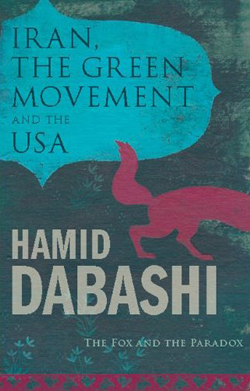Description
Iran, the Green Movement and the US presents the dilemma that the West faces in dealing with the Islamic Republic of Iran and their nuclear armament, and how the unfolding civil rights movement in Iran (the Green Movement) will be affected by this interaction. Expert Iranian author Hamid Dabashi argues that if Obama negotiates with Ahmadinejad, he will further strengthen the IRI regionally and legitimize Ahmadinejad’s otherwise troubled presidency internationally; and if he were not to do so and opt for further economic sanctions and/or military strikes he will paradoxically strengthen the IRI regionally and altogether destroy the domestic opposition and the budding Green Movement. This elegantly written book presents an Iran weak in domestic affairs, but strong in regional geopolitics.This timely book provides the reader with dynamic picture of the region, and a purposeful analytic of how to understand and deal with it. Featuring a short history of how the US and Iran were placed in this confrontational positions and what are their respective allies in the region.
About the Author
Born on 15 June 1951 into a working class family in the south-western city of Ahvaz in the Khuzestan province of Iran, Hamid Dabashi received his early education in his hometown and his college education in Tehran, before he moved to the United States, where he received a dual Ph.D. in Sociology of Culture and Islamic Studies from the University of Pennsylvania in 1984, followed by a postdoctoral fellowship at Harvard University. He wrote his doctoral dissertation on Max Weber’s theory of charismatic authority with Philip Rieff (1922-2006), the most distinguished Freudian cultural critic of his time. He is currently the Hagop Kevorkian Professor of Iranian Studies and Comparative Literature at Columbia University in New York, the oldest and most prestigious Chair in his field. He has also taught and delivered lectures in many North American, European, Arab and Iranian universities.
Endorsements
‘Hamid Dabashi, once again, offers his readers a rare gift of passionate intellect into the meaning of the 2009 presidential protest movement in Iran. He traces the deeply committed democratic roots of Islam in this Green Movement for Civil Rights. He offers us a richly nuanced, complex understanding of the resilient, defiant, brave men and women in the streets and in the prisons. Dabashi shares his treasure chest with us. He dismantles the binary and oppositional divides like secular/religious; West/Muslim; men/women that do not let us understand others not like ourselves. He gives voice to this revolutionary moment of cyber culture found with You Tube, cell phones, digital cameras, web-blogs, Facebook, etc. and connects the Iranian Green Movement to the U.S. Civil Rights Movement of the 1960’s-’70’s. Dabashi shares Iran and with it Islam’s ancient democratic wisdom in a ‘heart-writing’ that gives us hope, against all odds. I thank him for this amazing gift.’
— Zillah Eisenstein, author of “Against Empire: Feminisims, Racism and ‘the’ West”
‘Steeped in Iran’s history and culture, Hamid Dabashi offers an insider’s view of a rapidly changing country. His insight into Iran’s culture and national psyche allows him to see the vibrant democratic society that is emerging there, beneath the veneer of religious rule. This book combines passion with academic rigor to show an Iran that is not fated to America’s enemy forever, and that could in fact become its partner. Americans need to hear this message.’
— Stephen Kinzer, author of “All the Shah’s Men” and “Reset: Iran, Turkey, and America’s Future”
‘This remarkable book masterfully weaves together a tapestry of old Persian animal fables, contemporary music of dissidence, with an extraordinary new genre of “public” love letters in the feminine voice, published in web blogs by the wives of political prisoners, to offer a deeply informed and passionate analysis of the recent opposition movement and its potentials to transcend the poetics and politics of power and resistance in Iran and beyond. Dabashi’s timely work bestows the Humanities with a much-needed model of combining the depth and breath of scholarly knowledge with the punctual and fast pace spirit of journalism. One does not have to agree with every point in his analysis to recognize his invaluable contribution, not merely to academia, but to the spirit of resistance in the world. His approach and analysis challenge us all to rethink such reductive dichotomies as secularism, religion; tradition, modernity; West, East, and so on, in the name of a transformative cosmopolitanism. The scope and the erudition in this book are reminiscent of a time of old fables in which the cosmopolitan intellectuals, at once artists, historians, philosophers, and so on, created their masterpieces.’
— Shahla Talebi, author of “Ghosts of Revolution: Rekindled Memories of Imprisonment in Iran”



 Columbia University
Columbia University Aljazeera
Aljazeera Middle East Eye
Middle East Eye Springer Palgrave
Springer Palgrave